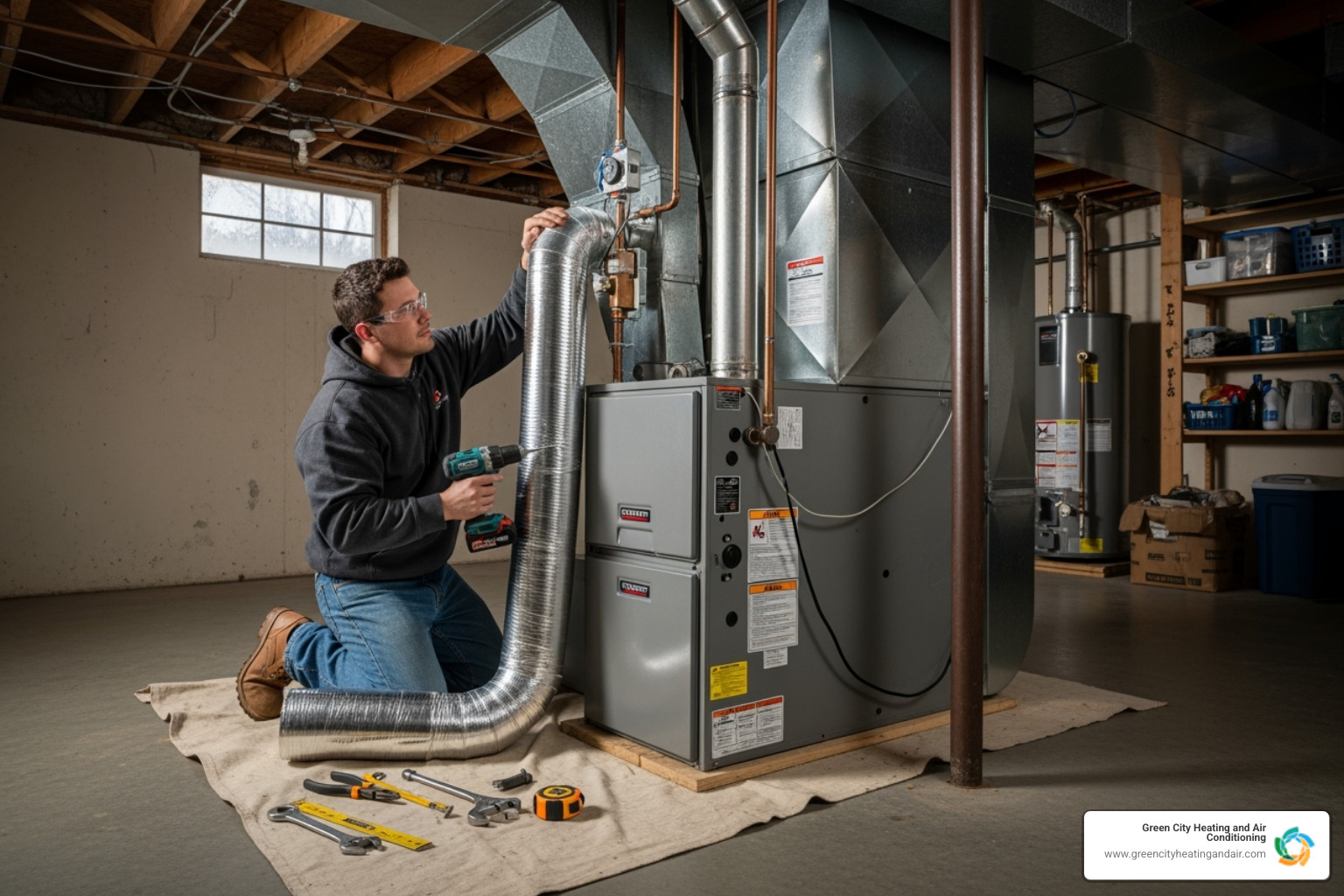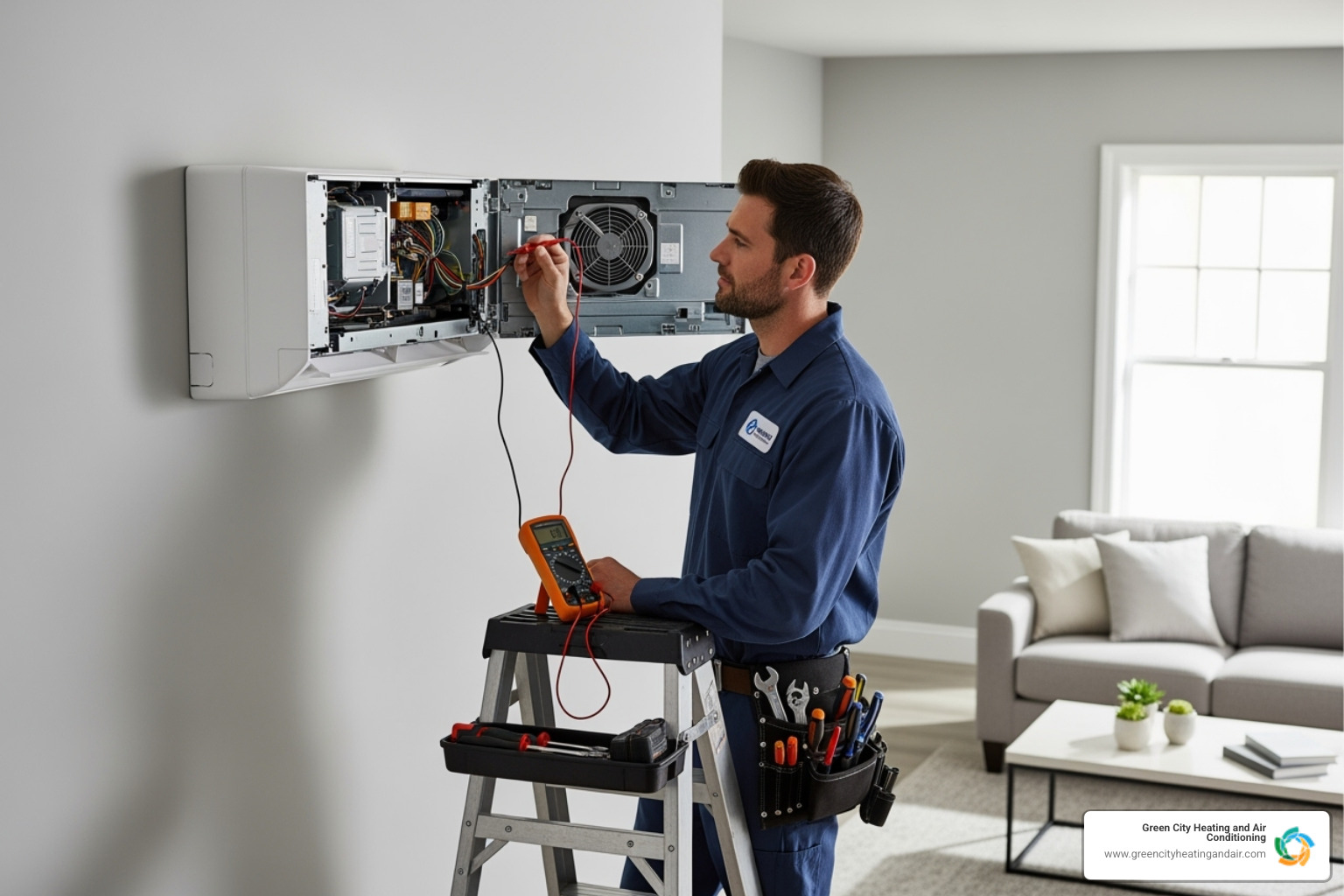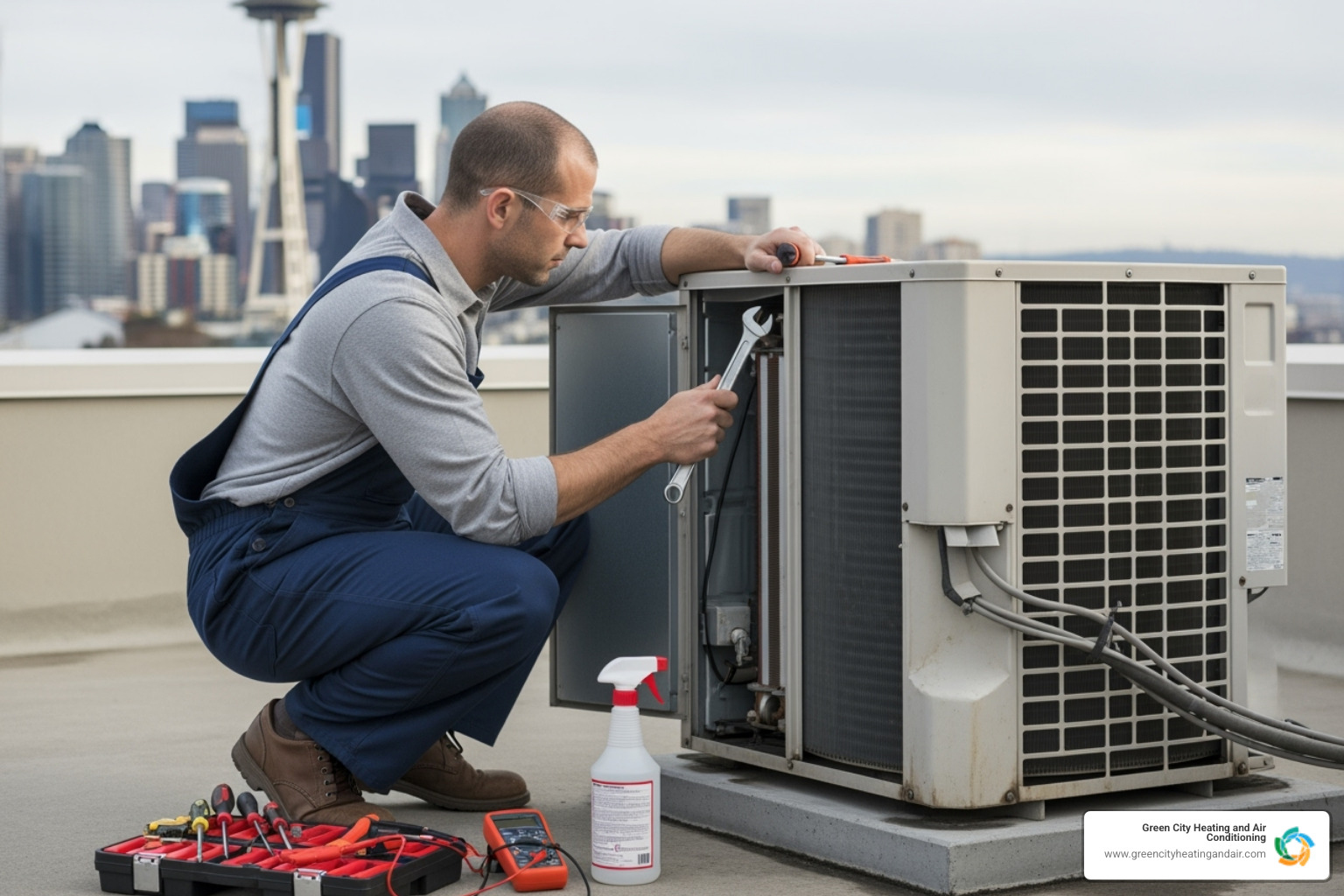When your AC split mini in Clyde Hill starts leaking refrigerant, staying comfortable during hot summer months becomes a challenge. This type of problem is frustrating and can point to a deeper issue within your cooling unit. Refrigerant is essential for the system to pull heat from inside your home and transfer it outdoors. Without it, your unit cannot function correctly, and your energy bills could rise while your home still feels warm.
Leaking refrigerant does not fix itself. The longer it goes unrepaired, the more damage it can cause, from reduced cooling performance to total system failure. Understanding why this happens and learning to recognize the early signs can help you act before the situation gets worse. Keep an eye out for warning symptoms and schedule service before problems escalate.
Signs Your AC Split Mini Is Leaking Refrigerant
It is not always obvious that your system has a refrigerant leak right away. However, certain signs can help you catch it early. People often notice a slow drop in cooling performance or odd sounds before realizing something is wrong. Here are a few red flags to watch for:
- Weak airflow or reduced cooling: If the unit struggles to cool your space, especially on hotter days, low refrigerant could be the cause. You might find yourself lowering the temperature setting repeatedly, but the room still does not cool adequately.
- Ice buildup: Ice forming on the coil or refrigerant line is a warning sign. Low refrigerant causes the temperature inside the system to drop below normal, which can lead to frost or ice on various components.
- Hissing or bubbling noise: These sounds typically indicate that refrigerant is escaping through a crack or hole in the line. If you hear this near the indoor or outdoor unit, it should be checked right away.
- Sudden increase in electricity bills: As the system works harder to cool your home due to low refrigerant, it draws more power. A higher energy bill may be a side effect of reduced refrigerant levels.
Ignoring these symptoms can result in more costly repairs. One homeowner in Clyde Hill experienced warm air blowing from their vents despite lowering the AC setting. Upon inspection, a slow refrigerant leak was discovered within the indoor coil. Because the leak was caught early, repairs were minimized and the home returned to a comfortable temperature sooner.
Common Causes of Refrigerant Leaks in AC Split Mini Systems
Several factors can cause your AC split mini in Clyde Hill to leak refrigerant, often due to wear or installation problems. Knowing the common sources can help with making informed decisions about repairs and future preventative measures.
Some of the most common causes include:
- Faulty or incomplete installation: Leaks may begin when units are not installed properly. If the connections between refrigerant lines or valves are not tightly secured, slow leaks can start shortly after setup.
- Wear and tear over time: Frequent usage puts stress on the system. As time passes, joints, coils, and valves can deteriorate, creating weak points that allow refrigerant to escape.
- Corroded coils: Outdoor coils are especially prone to corrosion due to exposure to the elements. This corrosion can produce small holes that release refrigerant.
- Skipped routine maintenance: Without regular maintenance, minor issues such as loose fittings may go unnoticed. These can eventually lead to leaks if left unaddressed. A consistent maintenance schedule helps prevent these problems before refrigerant levels drop.
Understanding what leads to refrigerant leaks not only helps prevent future issues, but also supports the longevity and performance of your cooling system.
How Our Professionals Detect Refrigerant Leaks
Finding and repairing a refrigerant leak in your AC split mini system requires more than a simple inspection. While symptom recognition is helpful, our professionals use proven inspection procedures and tools to accurately locate the source and determine the level of refrigerant loss.
The detection process includes:
- Visual inspection: Our professionals examine connection points, refrigerant lines, and coils closely, looking for signs like oil stains or frost. These can indicate possible leak locations.
- Electronic leak detection: Using a specialized tool that detects the presence of refrigerant gases, our professionals can pinpoint areas of concern even when there are no visual signs.
- Pressure testing: When visual and electronic tests are inconclusive, nitrogen may be used to pressurize the system. This reveals hidden leaks by checking for pressure loss over time.
No two systems are the same, especially when factoring in age and service history. Because of this, our technicians utilize a combination of detection methods. Relying on only one approach can result in inaccurate diagnosis and incomplete repairs. Precision matters when addressing refrigerant leaks, so we verify the problem thoroughly before proceeding with solutions.
Why Quick Repairs Make a Big Difference
Delaying repairs for a refrigerant leak can lead to bigger problems and higher repair costs. Low refrigerant places extra strain on multiple parts of the AC split mini system. The compressor, which is critical to the cooling process, may overwork itself. If it fails, the result is often a significant expense or even complete system replacement.
From an energy standpoint, the system becomes much less efficient. As refrigerant levels decrease, the unit runs longer to keep temperatures stable. This raises energy consumption. You might also notice short cycling, where the AC switches off and on frequently. This often leads to inconsistent room temperatures.
Another area affected by low refrigerant is indoor air quality. An underperforming AC system may struggle to dehumidify air properly. This can create a moist indoor environment that promotes mold growth. If the coil freezes, it can block airflow, decreasing air circulation and cleanliness within your home.
Fixing refrigerant problems right away offers long-term benefits. It protects your system components, saves money on utilities and future repairs, and helps keep your home as comfortable as possible. Some leaks may be minor and easily repaired if addressed early. But when left alone, those same leaks can lead to major system failures and disruption.
Maintaining AC Split Mini Performance in Clyde Hill
To keep your AC split mini unit running well in Clyde Hill, regular upkeep is key. Refrigerant should never be low under normal conditions. If your levels drop, it means a leak is present and attention is needed. Preventative action through scheduled maintenance helps avoid costly issues when the heat becomes unbearable.
Yearly service visits, especially before the cooling season intensifies, offer peace of mind. During these visits, our professionals check refrigerant levels, inspect coils, and evaluate system pressure. These tests reveal small issues early, when repairs are still manageable.
Staying ahead of refrigerant leaks preserves your system’s full performance. Your home consistently reaches and maintains the right temperature, you avoid surprise breakdowns, and you improve indoor air quality. Fixing leaks does not just help with cooling. It protects the entire system from strain and gives you the confidence that your AC split mini is working properly throughout the summer.
If there is any change in cooling output or if the system starts acting unusual, qualified professionals should investigate. What starts as a tiny leak can grow rapidly into a much more serious problem. Addressing the issue early makes all the difference in keeping your home comfortable and your AC system dependable.
If you notice any signs of refrigerant leaks or uneven cooling in your AC split mini in Clyde Hill, addressing these issues quickly can keep your system running efficiently and prevent further damage. At Green City Heating and Air Conditioning, our professionals use careful inspections and advanced tools to pinpoint refrigerant problems and restore comfort in your home. Acting promptly helps ensure that your cooling system maintains its performance throughout the hot season. For a quick estimate or to schedule a service visit, please contact us today.
More Blogs
Latest
insights and tips

Warmth Unleashed: The Ultimate Seattle Furnace Installation Handbook

Emergency Ductless AC Repair in Bellevue: Get Your Cool Back Fast










